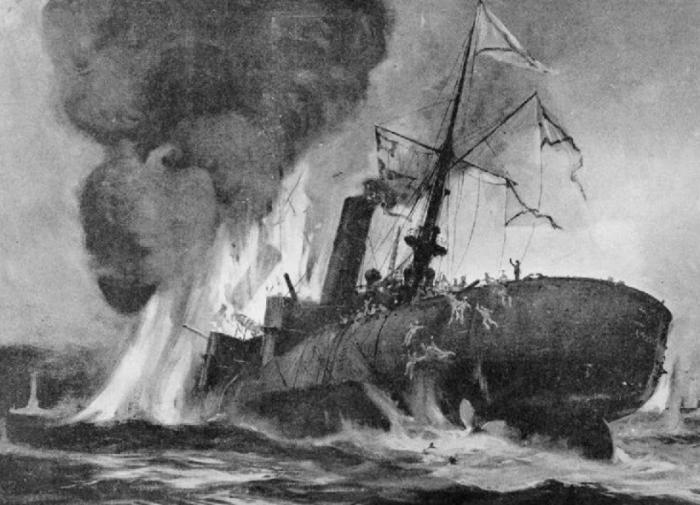Three wars that caused the Russian Empire to collapse
Since 1478, Russia has taken part in 138 wars and suffered defeat in 18 of them. Three of those wars led to most severe territorial and human losses for Russia.

Livonian War (1558 - 1583)
The conflict sparked after the Livonian Confederation refused to pay tribute that Russia had imposed since the previous war in 1481. The Livonians actively obstructed the development of Russian trade in the Baltic Sea and concluded an offensive-defensive treaty with Poland and Lithuania.
Having realised that the war with the Baltic would be inevitable, Ivan the Terrible organised a crusade to Livonia. At first, Russia was winning, and both Livonia and Lithuania were completely defeated. However, the European countries joined their forces in the face of the threat from the Russian army.
As a result of the war, a new state appeared on the political map in 1569 - Rzeczpospolita, which started the war against Russia with renewed energy.
By the 1570s, all of Europe had been fighting against Russia - Poland, Denmark and Sweden. The events in the Baltics coincided with campaigns of the Crimean Tatars and the invasion of the Swedes against Russia. Moscow was forced to conclude an armistice with the Poles and the Swedes.
The conflict eventually led to the thorough devastation of northwestern Russia, the loss of Livonia, Belarus and the southern coast of the Gulf of Finland. The war drained the country's internal resources and triggered a protracted economic decline. Subsequently, the adversaries deprived Russia of access to the Baltic Sea for 150 years ahead.
Russian-Turkish war (1710 - 1713)
For 20 years, Russia had been at war with Sweden. After the defeat of the Swedes near Poltava, King Charles II fled to the Ottoman Empire. He and the Crimean Khan Davlet II Girey persuaded Turkish Sultan Ahmed III to declare war on Russia.
Peter I decided to act offensively: he chose to inflict distracting blows on the Tatars in small numbers, and attack Turkey massively via Moldavia and Wallachia.
The 80,000-strong Russian army, including the tsar himself, went deep into Moldova and faced the 120,000-strong Turkish army. The 80,000-strong army of the Crimean Tatars came to the aid of the Turks, and the Russians were cut off from the supply lines and encircled.
Peter I admitted his defeat. The Russian army had the right to return home, but in exchange the tsar had to return the entire coast of the Sea of Azov to the Sultan.
The Russo-Japanese War (1904-1905)
During the second half of the 19th century, Japan experienced a powerful industrial and economic boom known and the Meiji Revolution. In less than half a century, the Japanese managed to adopt all achievements of Western civilization, recover their military power and thought about expansion into Asia.
The Russian Empire was on the way for Japan as Russia had firmly established its presence in Manchuria and Korea by that time. In 1904, without an official declaration of war, the Japanese fleet attacked the Russian squadron at Port Arthur. Having captured the naval base in a landing operation, the Japanese went inland.
Russia was defeated at sea and forced to abandon its positions in Chinese Manchuria. The Russians ceded the rights to Korea and the territory of Sakhalin with all the adjacent islands to the Japanese, including the Liaodong Peninsula and with Port Arthur.
The defeat in the Russo-Japanese war significantly undermined the state prestige of Russia. The empire lost its status of the supremacist power and world's military force No. 1. The defeat also exposed the weakness of the Russian monarchy and laid the foundation of revolutionary prerequisites in the country.
Subscribe to Pravda.Ru Telegram channel, Facebook, RSS!


